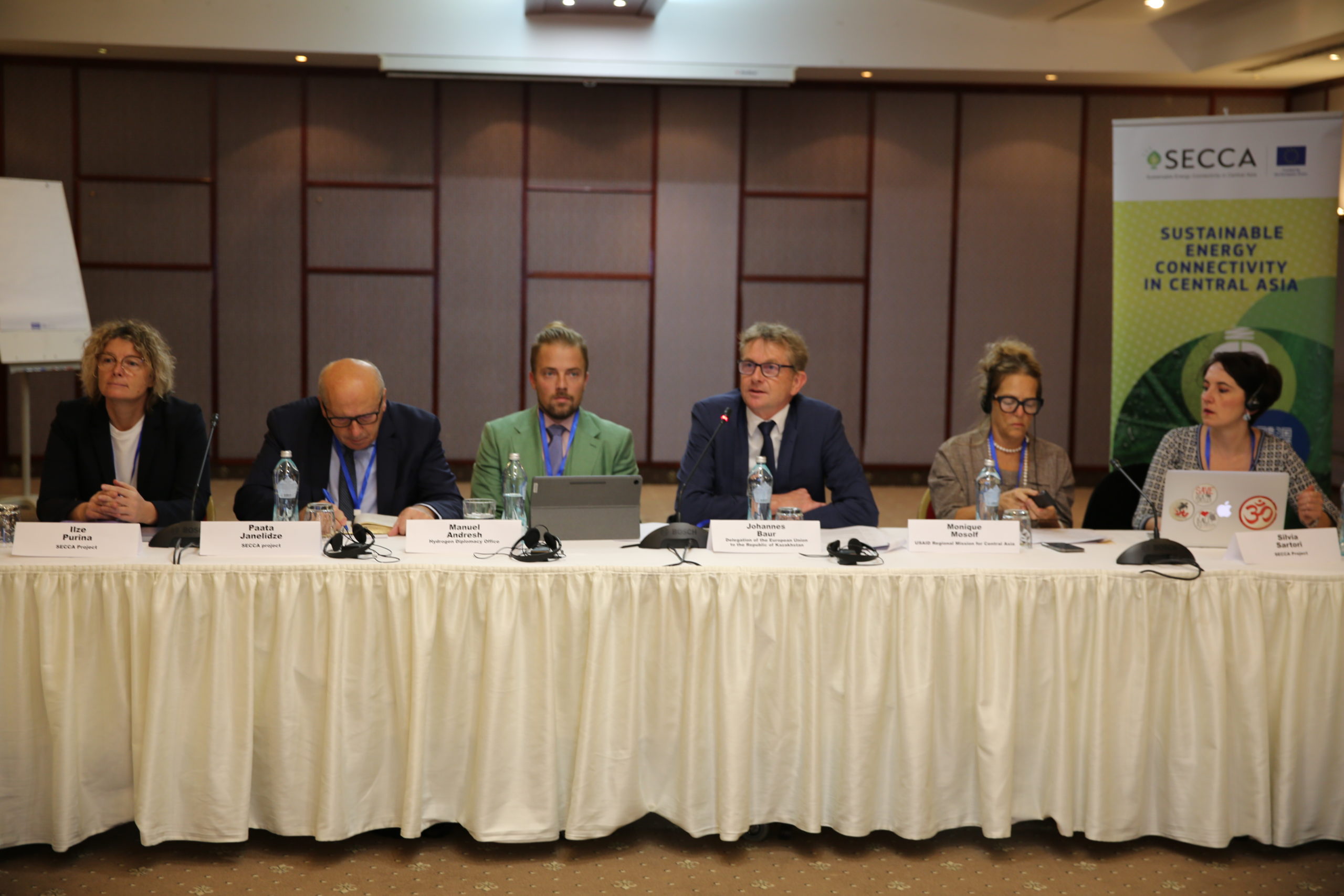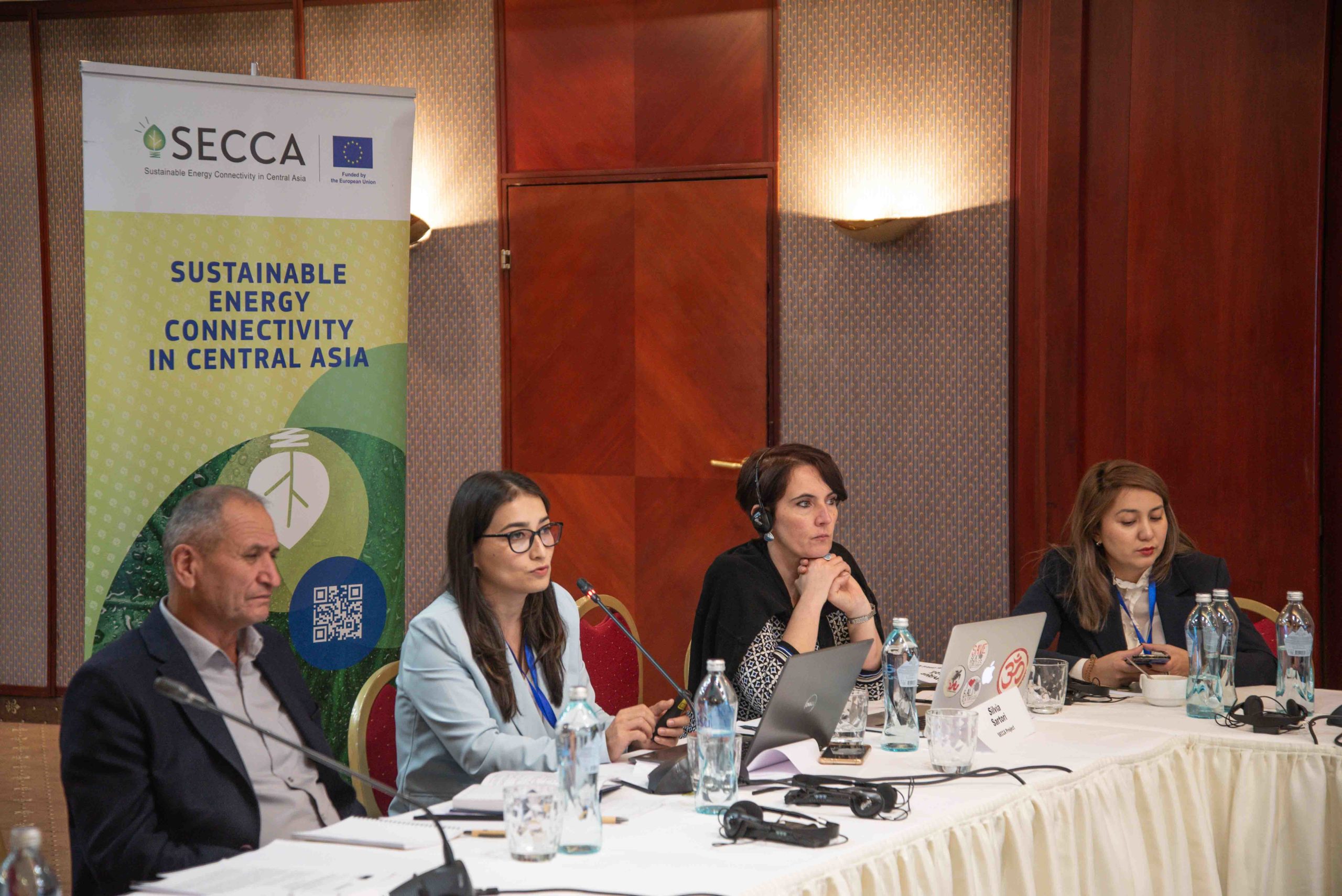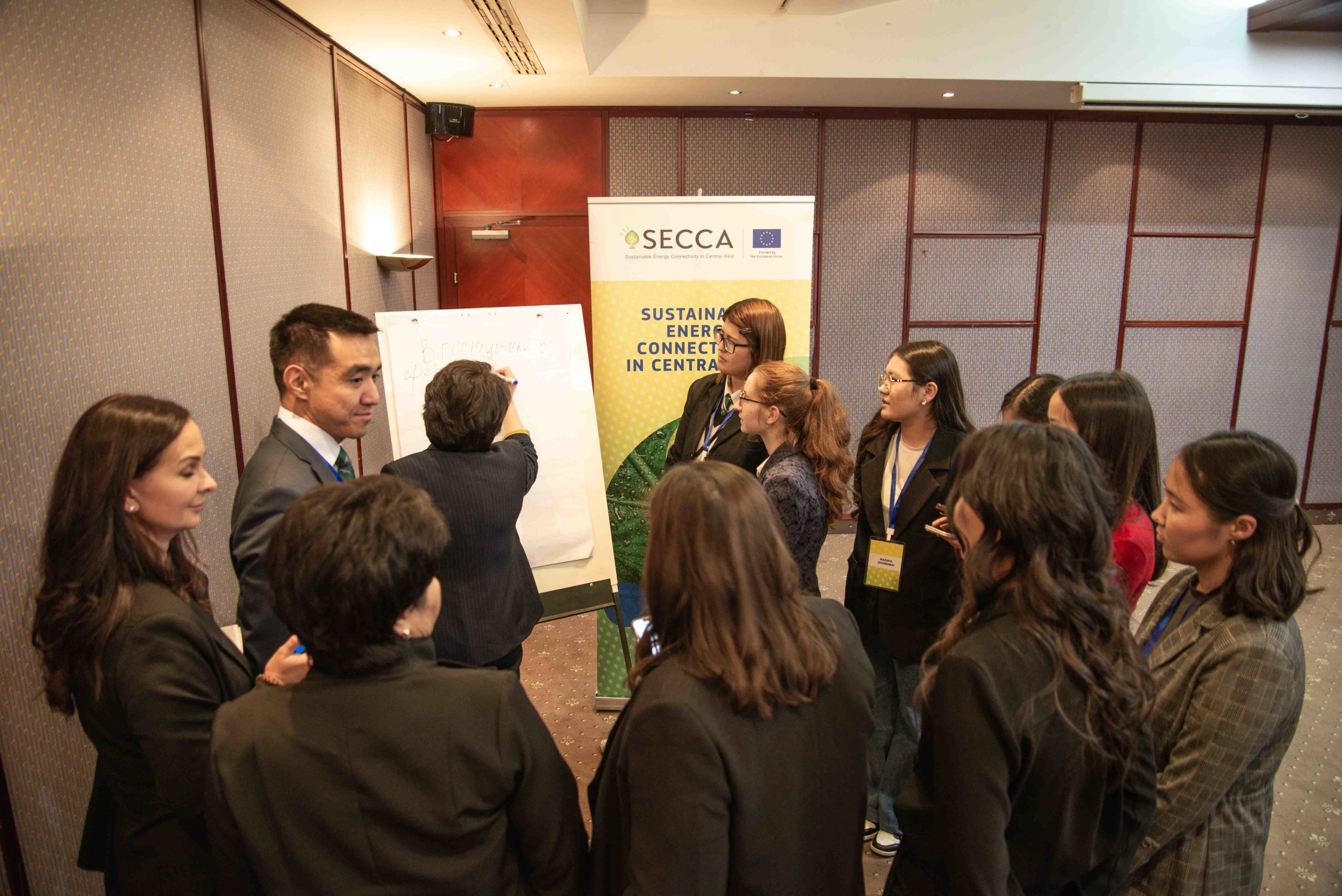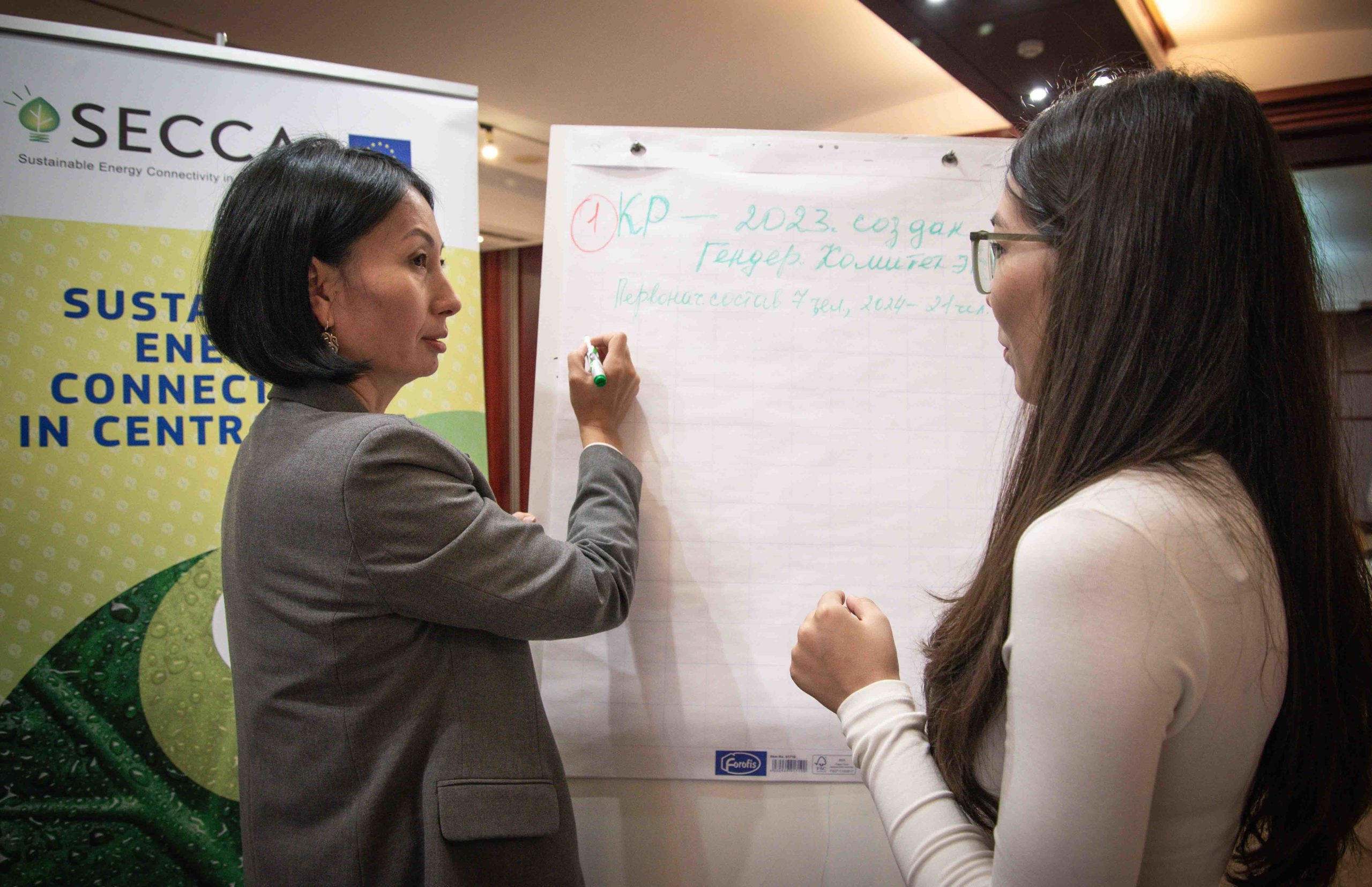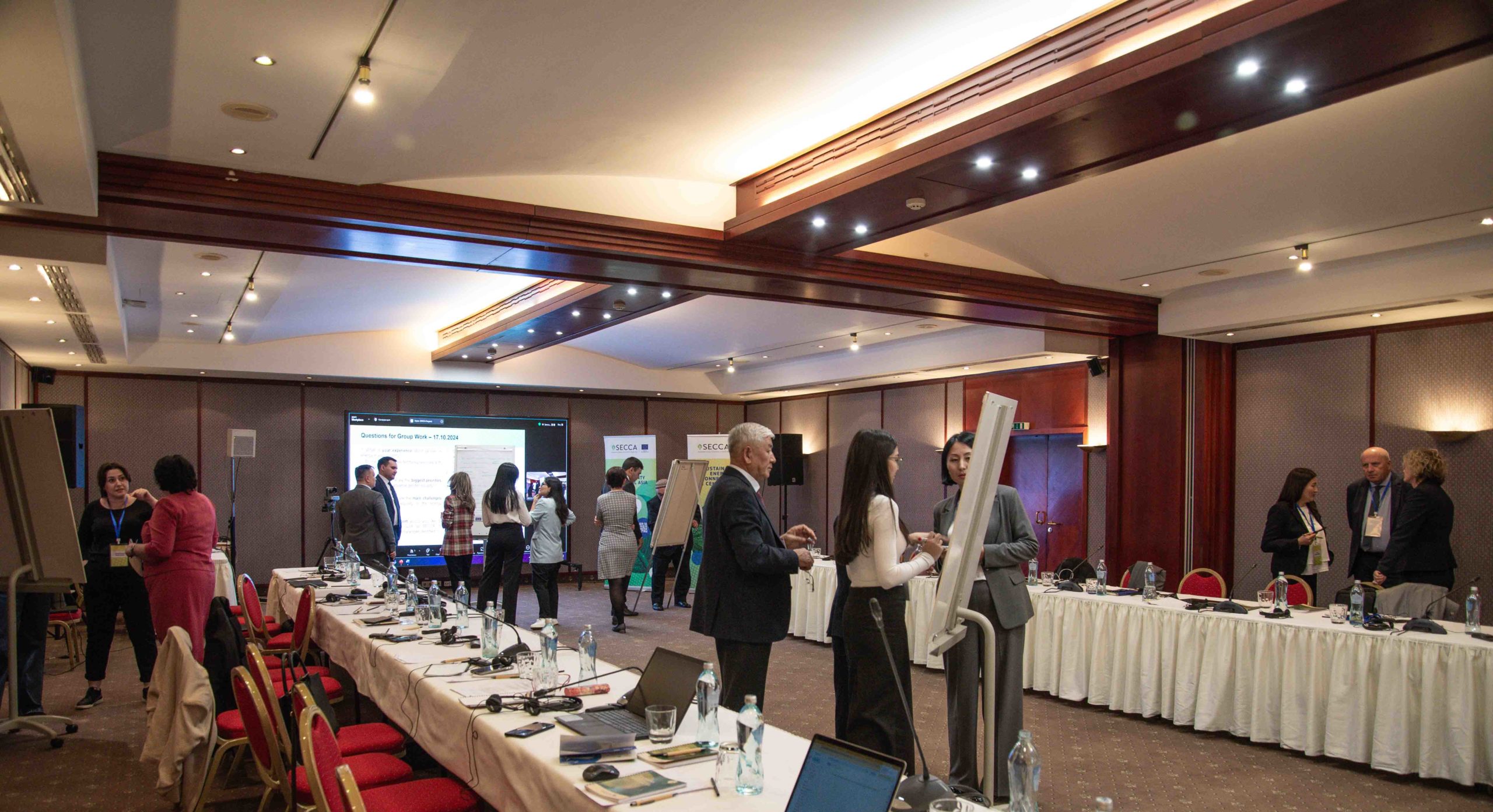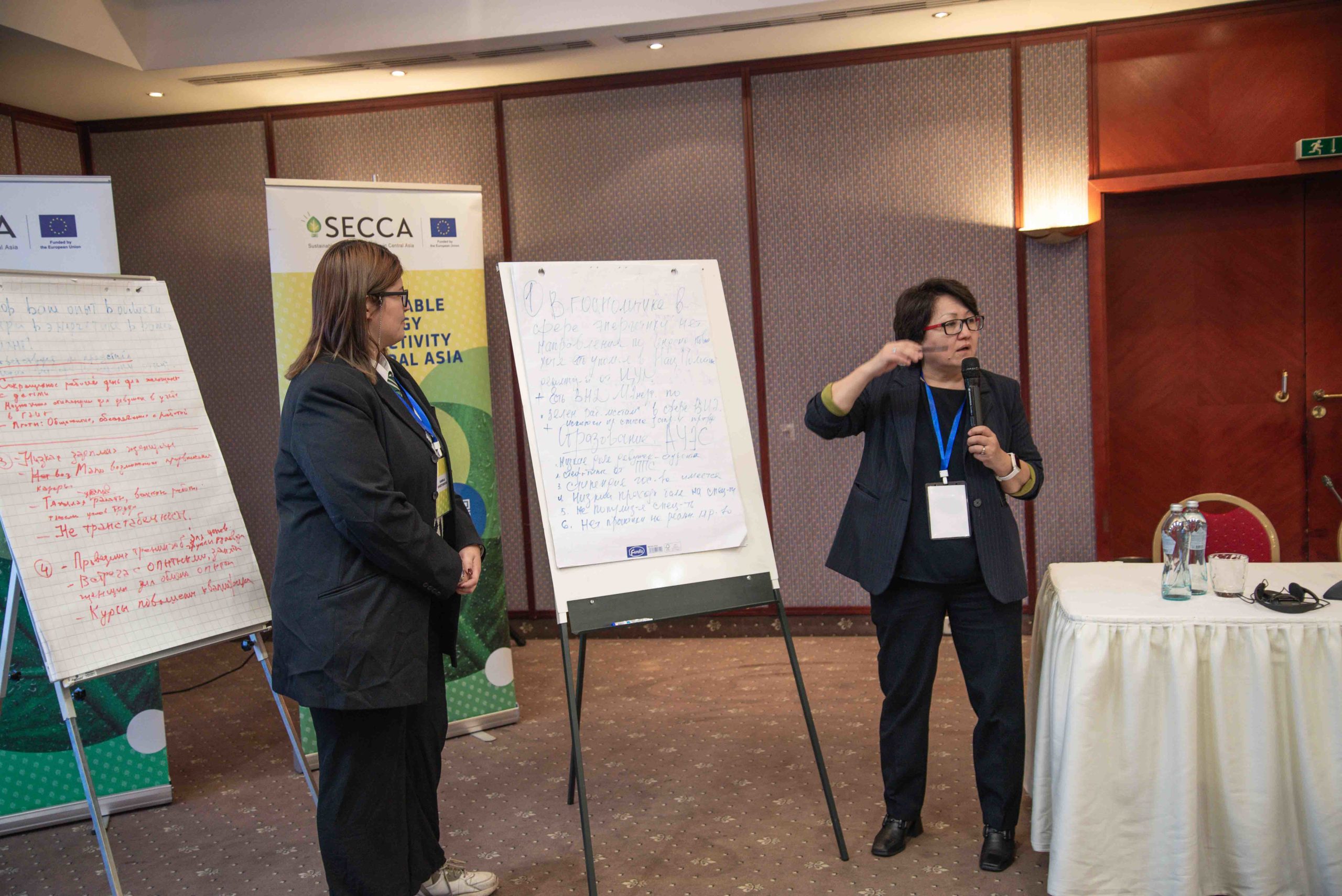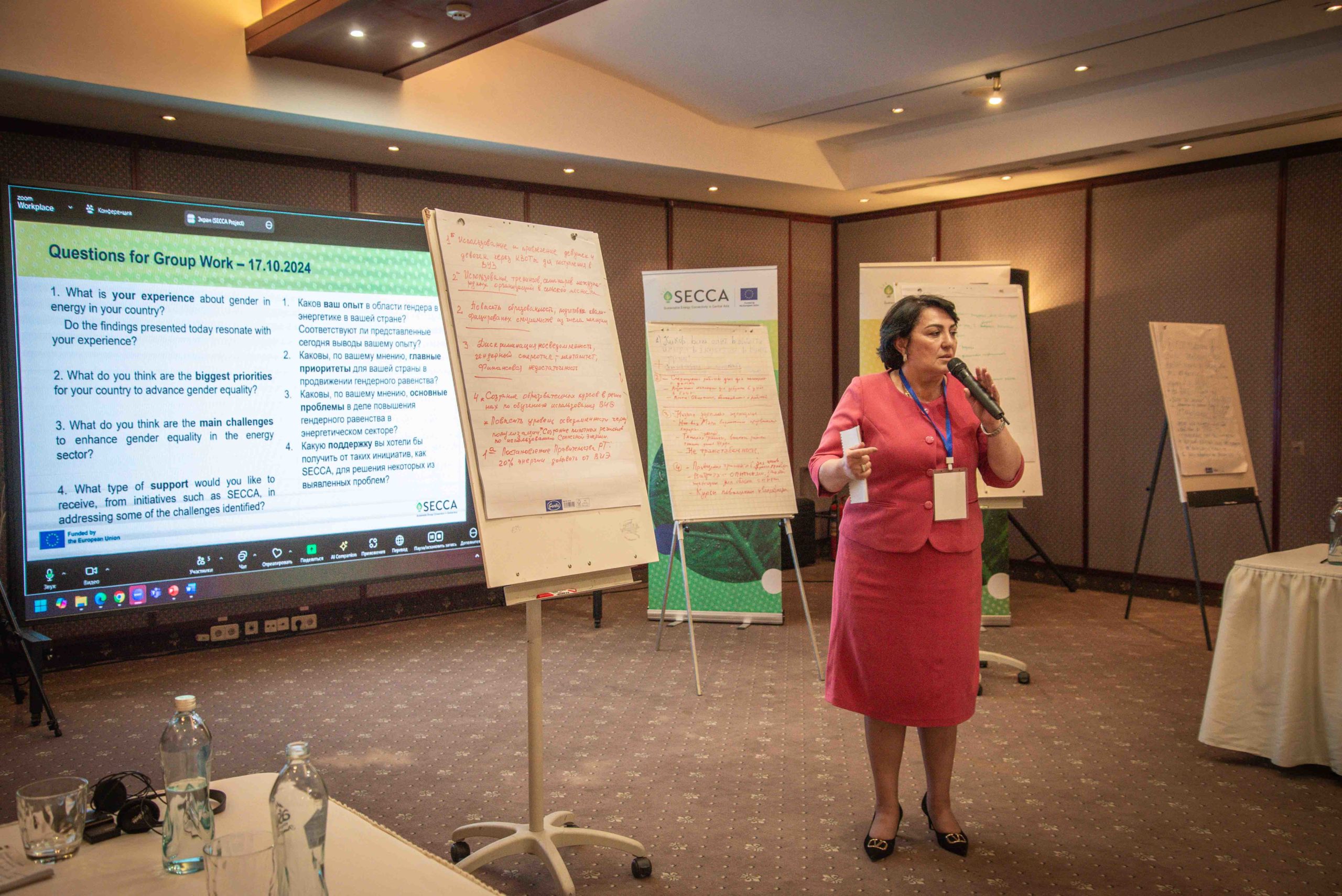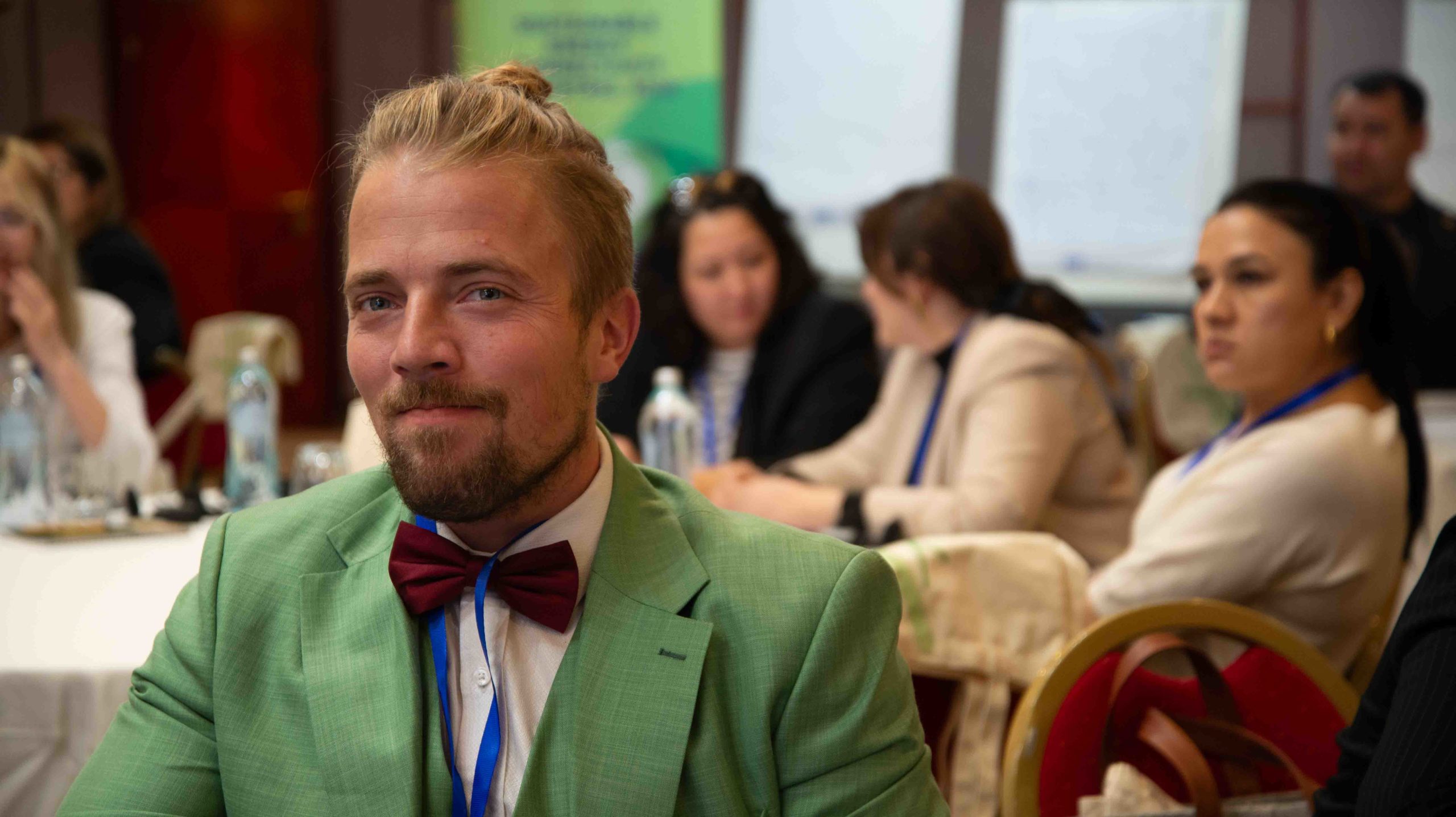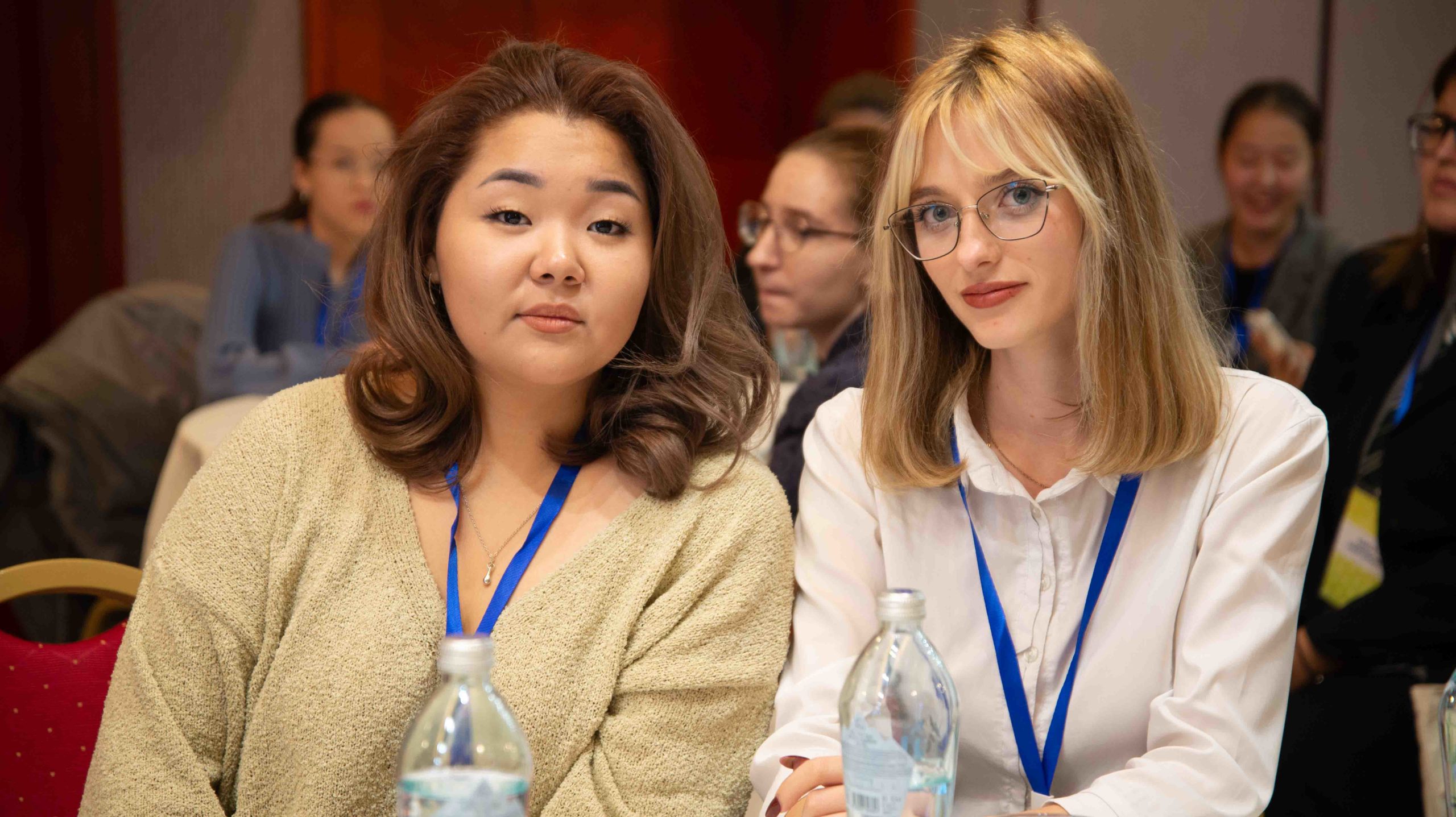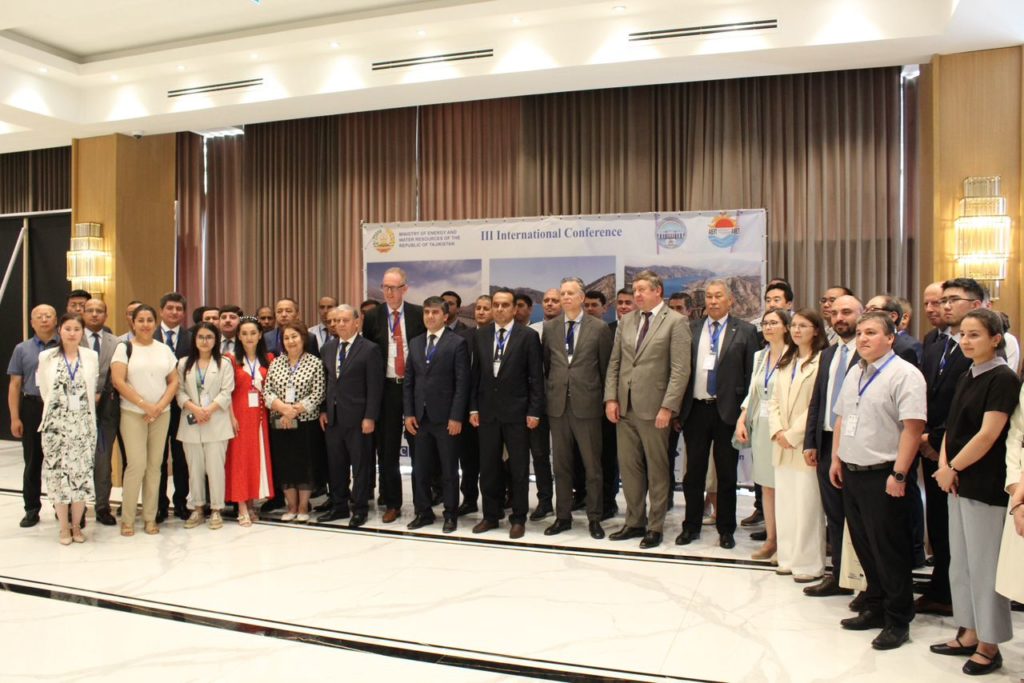Almaty, Kazakhstan – Over 70 representatives of national energy ministries, energy companies, associations, international and regional partners, and energy students gathered at the Regional Conference “Gender and Energy in Central Asia”. The event, held on 17-18 October 2024, was organised jointly by the European Union (EU) through its project “Sustainable Energy Connectivity in Central Asia (SECCA)”, USAID Power Central Asia, and the GIZ project “H2-Diplo – Decarbonisation Diplomacy”.
Globally, women remain significantly underrepresented in the energy sector, accounting for only 22% of the workforce in oil and gas, and 32% in the renewable energy sector. This gender disparity is among the largest across industries worldwide.
Gender equality is a priority for the European Union, as indicated in its 2020-2025 Gender Equality Strategy. In the opening remarks, Dr Johannes Baur, Head of Cooperation at the EU Delegation to Kazakhstan, stated: “Cleaner energy sources and energy-efficient practices are crucial for an effective energy transition. At the same time, inclusivity and equality also play a key role in ensuring that the energy transition is truly effective, long-lasting and resilient. Central Asian countries have achieved remarkable progress in setting and pursuing ambitious climate neutrality and greenhouse gas emissions reduction targets. Meeting these targets requires substantial investment and a skilled workforce. Currently, the global talent pool is insufficient, and Central Asia is no exception. Women and men, girls and boys each have specific needs and talents, and it is crucial to take these differences into account when designing policies, developing projects or launching new initiatives”.
During the conference, SECCA project experts presented the findings from the Gender-in-Energy Assessments conducted for each Central Asian country and the region as a whole. Leading female energy professionals from the region and beyond shared insights and experiences, while representatives from organisations such as EBRD, GIZ, and USAID discussed how gender is being integrated into development and financial projects and the results achieved so far.
SECCA Gender Specialist Ms Silvia Sartori noted: “There are some promising concepts and practices implemented by Central Asian countries. If applied effectively and scaled up regionally, they could make the energy sector more inclusive and gender-equal, contributing to more sustainable and resilient national economies. However, challenges remain, such as the lack of gender-disaggregated data, limited reference to gender in energy policies, and under-representation of women in the sector’s workforce. The expert presentations and discussions during this conference have brought us one step closer to addressing these challenges together.”
The Conference raised awareness and promoted dialogue at the regional level on the nexus between gender equality and clean energy. It also collected inputs on priority areas and specific needs to advance gender equality within the energy sector.


